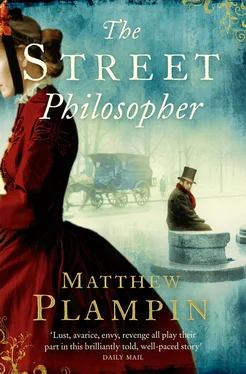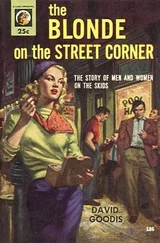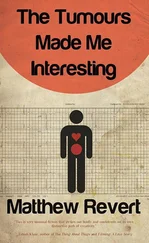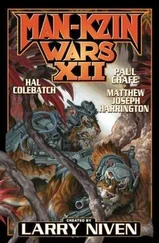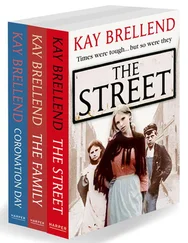Styles asked whether they might stop for a moment, so that he could take in this sight properly–perhaps even make a quick sketch. Kitson continued to stride on ahead at some speed, however, with no sign of having heard him. Hands in his pockets, he was staring down at the ground, entirely absorbed in private thoughts. The illustrator didn’t repeat his request. He was determined not to prove an annoyance. Kitson’s heavy beard and dusty, discoloured clothes seemed to rebuke him for his late arrival on the campaign, for the months of hardship he had missed–and to demand that he demonstrate his suitability for the task that lay ahead.
Thomas Kitson, also, was someone with whom he felt he had a deep kinship. During the course of his briefings at the London Courier , Styles had heard a good deal about the junior correspondent. More than two months after Kitson’s departure, the magazine’s offices on the Strand still hummed with talk about the unaccountable fellow who had abandoned a promising career in art criticism to follow Lord Raglan’s Army. He was exceedingly knowledgeable, these gossips said, and had been expected to rise to the summit of his profession before long–yet he had decided to risk everything, his very life included, to chase after battles with the notoriously unpredictable Richard Cracknell. The verdicts of his former colleagues were harsh–they theorised that Kitson, in the last years of his youth, had developed a craving for glory, for a reputation that anonymous reviews of picture-shows could never bring him. Either that or he had received some sort of hard, disorientating blow to the head.
But one powerful voice had been raised in Kitson’s defence, sending his detractors scuttling for cover: that of old Mr O’Farrell, the Courier’ s editor-in-chief. ‘The man of whom you speak so dismissively can summon forth images with his pen that none of you wretched inkhorns could ever hope to match,’ he had snapped. ‘He desired a challenge, a subject of import, of weight , well away from the vapid commonplaces of Metropolitan conversation–and I was not prepared to deny him it!’
This outburst had heartened Styles enormously. This was his wish as well–to witness something great , something that would make him more of a man and more of an artist. He, too, had met with his share of opposition, from fearful relatives and uncomprehending friends, all looking at him in utter mystification when he told them of his contract with the Courier . Hearing O’Farrell speak of Kitson in this manner had made him believe that his decision was justified, that he was off to perform a noble task with like-minded souls. Yet here he was, out on the campaign at last, in Mr Kitson’s company no less, and they had barely exchanged a word beyond their initial greeting. This was not how he had envisioned his first hour as a member of the Courier team.
The two men started along a narrow mud track, and the silence stretched until Styles could bear it no longer. ‘May I ask where we are heading, sir?’ he said, loudly and a little plaintively. ‘I’d assumed we’d be going straight to camp in order to commence our duties, but we seem to be heading in the very opposite direction.’
Kitson pointed towards some nearby chimneys, just visible over a bank of brush to their right. ‘Mr Styles,’ he began, a touch of amusement in his voice, ‘you will soon discover that our foremost duty as Mr Cracknell’s juniors is not to draw or write but to secure the Courier’ s provisions. We will find what we need over there.’
‘Does the army not provide for us?’
This prompted a sarcastic laugh. ‘The army, my friend, can hardly provide for its own. On the first night here the soldiers had no tents , let alone sufficient rations–and this was in heavy rain. Sir George Brown, commander of the Light Division, was obliged to take shelter under a cart. We newspapermen are a long way down the list of priorities.’ Kitson waved a thin forefinger in the air. ‘The first lesson of life on campaign, sir: make your own arrangements!’
The track wound around a low hill to bring them before a large manor house with a walled yard. It was a smart residence indeed, built from even blocks of pale stone. Heavy shutters, painted dark green, covered every window; the house’s owners had clearly left to escape the approaching war. The wide, cobbled yard was fringed with outbuildings and stables, somewhat cruder in style but all coated with a creamy whitewash that made them glow warmly against the surrounding hedgerows.
Kitson headed confidently across the yard. A handful of peasants stood behind carts and barrows that had been arranged to form improvised market-stalls, upon which a small selection of produce from the surrounding fields had been laid out for purchase. These peasants resembled the Arabs Styles had seen at Constantinople, but with a touch of the Orient about their eyes. All were male, and most were bearded; they wore mud-stained smocks made from sackcloth and canvas, and brimless fur caps upon their heads. Every one of them was watching the Englishmen closely. A couple made observations in a guttural language Styles was pretty sure wasn’t Russian.
‘Crim Tartars,’ murmured Kitson. ‘The original inhabitants of this peninsula, here long before Catharine the Great took it under her dominion. They are serfs, effectively. They’ve taken to congregating outside this place–the seat of a squire, I believe, or the Crimean equivalent–with whatever wares they can scrape together. The French Commissariat has been coming over here to purchase food for their senior officers, but these fellows will happily sell to us as well.’ He took out some coins and jangled them together in his palm. ‘They are careful to keep their distance from the camps, though. The private soldier on campaign is not known for his courteous dealings with locals.’
‘Did they not think to flee?’
‘It would seem not. Some are no doubt hoping that their Russian masters will be defeated, and they will be able to reclaim a portion of this land for themselves. Others, the more loyal ones, are standing guard.’
The illustrator looked about him at the ramshackle market and the shuttered manor house. ‘Guarding what , sir? Nothing of any value has been left behind, surely?’
Kitson approached a stall and began inspecting some misshapen loaves. ‘You would be surprised, Mr Styles. The rich men of the Crimea left their homes in some haste. Ancient volumes, pictures, objects of virtu –all have been ferreted away in the slight hope that the storm of war will leave them unmolested.’
He bought one of the loaves with a large copper coin. As he took the money, the stall-holder nodded to the Courier man as if in recognition. ‘I have tried to draw attention to this matter, but I’m afraid that Cracknell isn’t particularly interested, so nothing will come of it. Our good senior is many things, Mr Styles, but he cannot be called a man of culture.’
Mention of Cracknell’s name caused Styles to remember Mrs Boyce’s singular, unsettling smile back on the beach. It was unlike any look of hers he had seen before–and he had studied her closely, with a devoted eye. ‘What is Mr Cracknell really like, Mr Kitson?’ he asked suddenly. ‘So much is said of him back in London. The most unsavoury stories …’
Kitson chuckled. ‘Don’t believe all that you hear, Mr Styles. Richard Cracknell can be somewhat … provocative, it is true, but he is an accomplished correspondent, and a man possessed of a truly fearsome determination. We are fortunate indeed to be with him. He wishes to take this unprecedented chance to experience war at first-hand, and wring everything out of it that he can.’
Читать дальше
